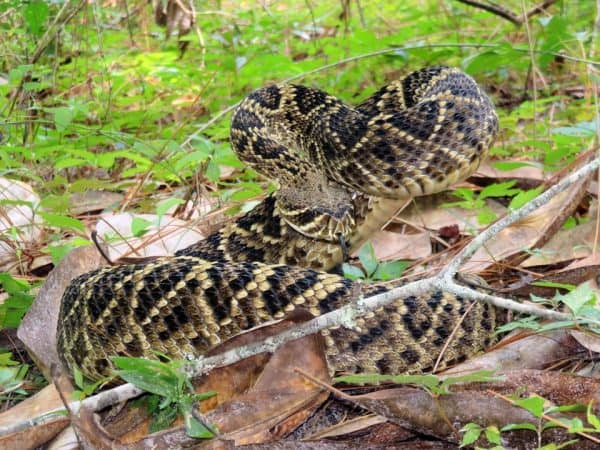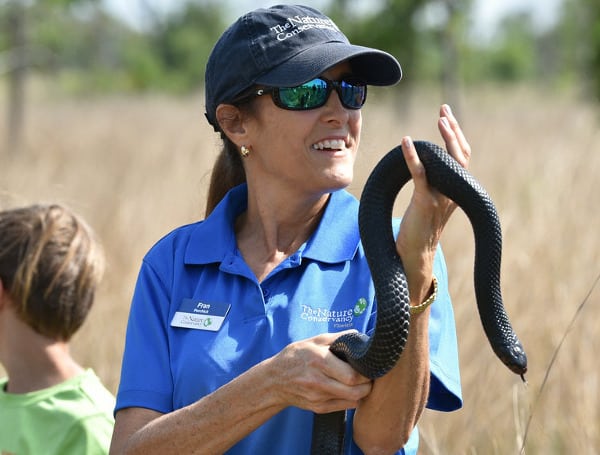Florida has a rich diversity of snakes and other reptiles, which play an interesting and vital role in Florida’s complex ecology. According to the FWC, snakes are on the move in Florida.
The Sunshine State boasts 44 species of native snakes in every conceivable habitat, from coastal mangroves and salt marshes to freshwater wetlands and dry uplands. Many species thrive in residential areas.
However, just a few species are commonly seen in a developed area, although any snake may occasionally be found in urban settings.
In the news: FWC Partners With RBFF To Fund Youth Fishing Education In Florida
Snakes occupy a valuable place in Florida’s ecosystem. For example, snakes help reduce rodent populations, which destroy crops and sometimes carry diseases that can infect people.
Non-venomous snakes also consume venomous ones and can help maintain ecosystem balances. Venomous snakes are also beneficial; for example, some rattlesnake species have been reported to consume ticks in their native ranges.

Only six of Florida’s 44 snake species are venomous: the eastern coral snake, the southern copperhead, the cottonmouth, the eastern diamondback rattlesnake, the timber rattlesnake, and the dusky pygmy rattlesnake.
Most Florida snakes are harmless and beneficial and remove extra rodent populations.
Even the venomous species are not particularly dangerous unless stepped on or otherwise provoked.
Most snakes you encounter are most likely to be non-venomous. By recognizing common non-venomous snakes and understanding their habits, you can take a more relaxed attitude toward them and appreciate them as an integral part of Florida’s wildlife.
In the news: FWC Hosts Annual Florida WildQuest Event, April 28-May 7
You are more likely to see snakes with higher water levels post-storm. Most snakes you will encounter are likely to be nonvenomous and more scared of you than you are of them.
If you see a snake, stay back. Snakes are not aggressive toward humans unless they feel threatened. They would much rather avoid encounters and will usually flee.
To avoid snake bites, leave snakes alone, stay out of tall grass unless you wear thick boots, and keep hands and feet out of areas you can’t see.
Here are some tips for snake safety in Florida:
- Be aware of your surroundings. Snakes are most active at dawn and dusk, so be extra cautious during these times.
- Wear closed-toe shoes and long pants when hiking or camping. This will help protect you from bites if you come into contact with a snake.
- Do not handle snakes. Even if a snake appears to be dead, it is best to leave it alone. Snakes can still bite even if they are dead.
- If you see a snake, do not approach it. Give it plenty of space and allow it to go on its way.
- If you are bitten by a snake, do not panic. The most important thing is to seek medical attention immediately.
Here are some additional tips for snake safety in Florida:
- Educate yourself about snakes. The more you know about snakes, the less likely you are to be afraid of them.
- Call a professional if you need help with a snake. There are many snake removal companies that can help you safely remove a snake from your home or property.
- Respect snakes. Snakes are wild animals and should be treated with respect. By following these tips, you can help to keep yourself and your family safe from snakes.
Visit https://myfwc.com/conservation/you-conserve/wildlife/ to learn more about Florida Wildlife.
Android Users, Click To Download The Free Press App And Never Miss A Story. Follow Us On Facebook and Twitter. Signup for our free newsletter.
We can’t do this without your help; visit our GiveSendGo page and donate any dollar amount; every penny helps.


